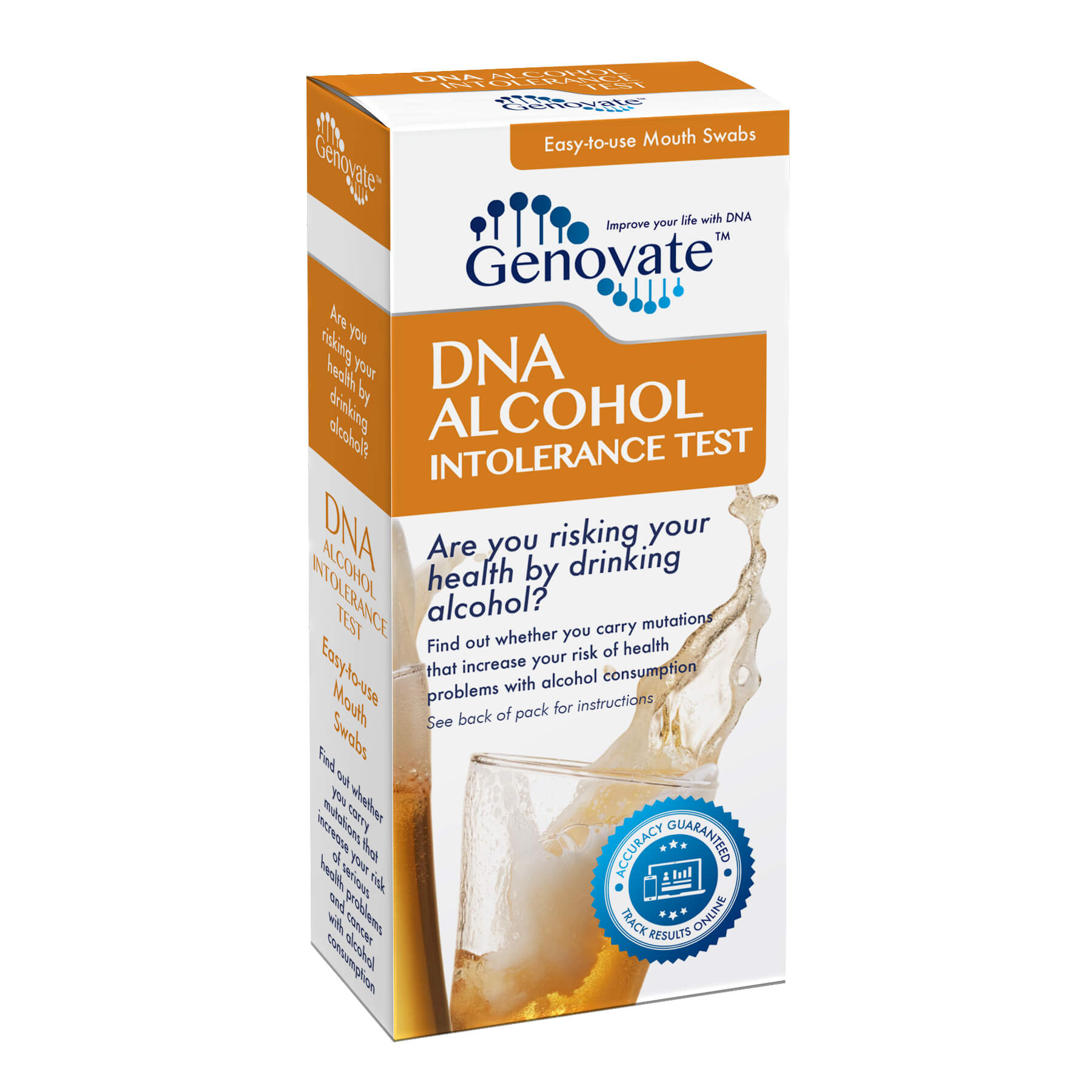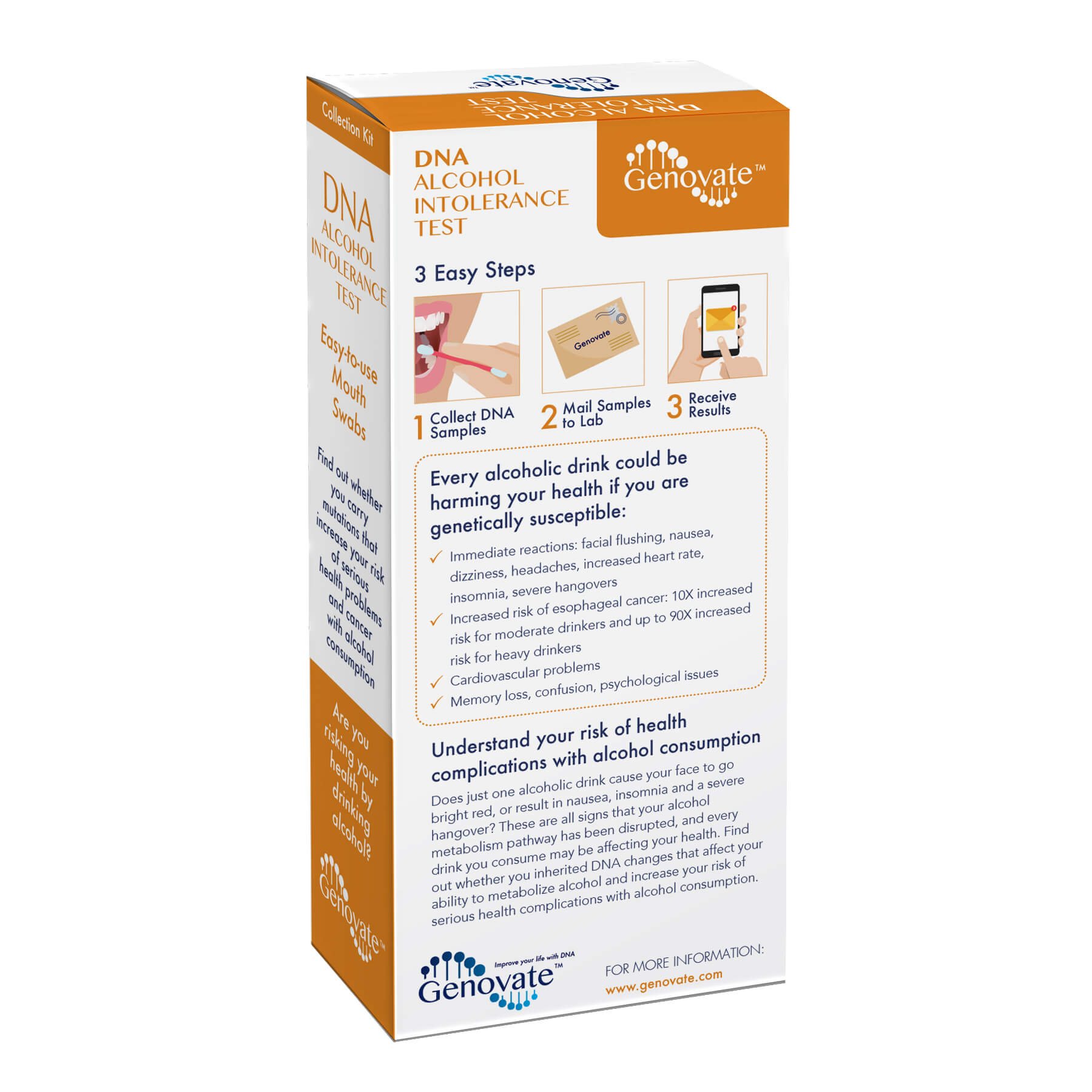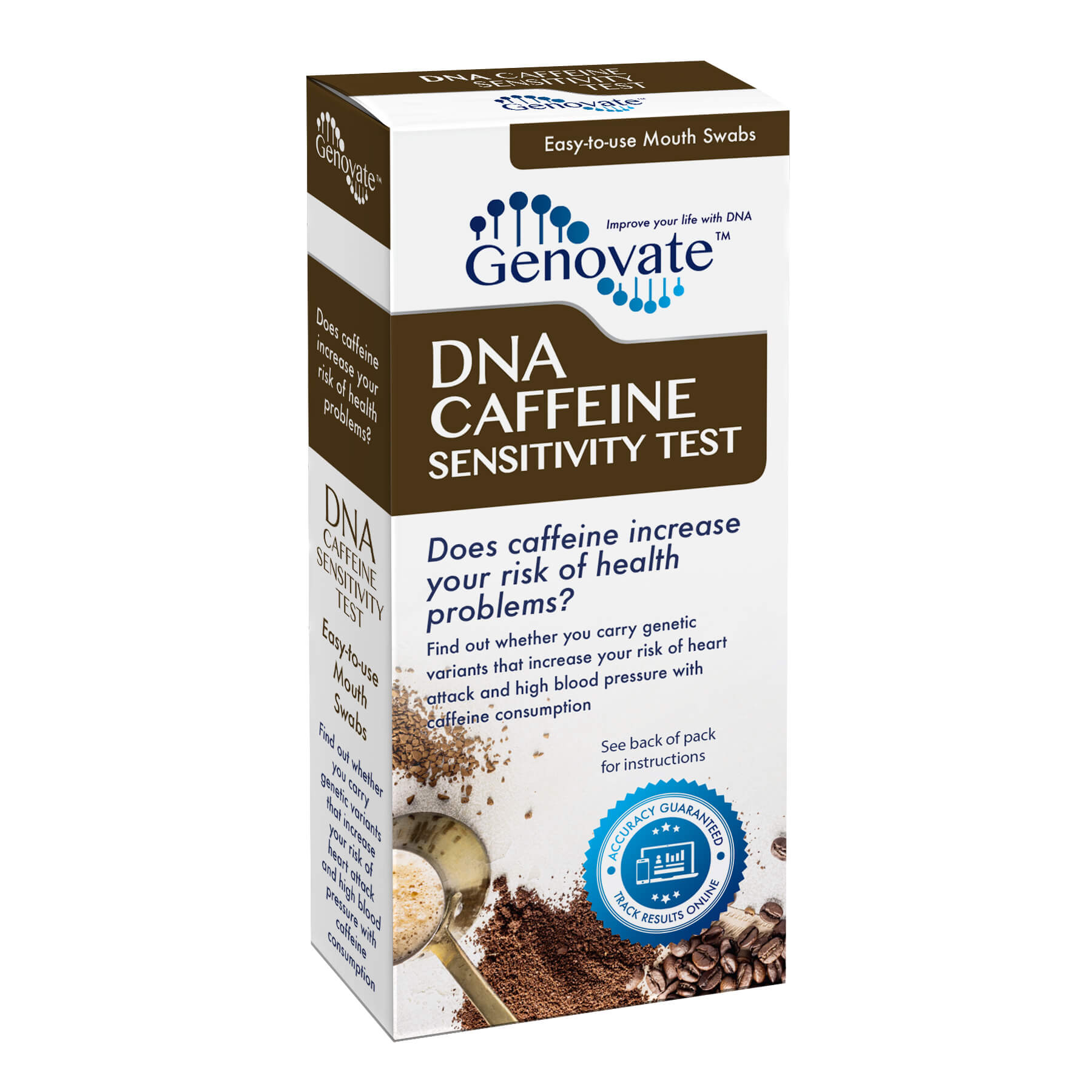- Immediate reactions: facial flushing, nausea, dizziness, headaches, increased heart rate, insomnia, severe hangovers
- Increased risk of esophageal cancer: 10X increased risk for moderate drinkers and up to a 90X increased risk for heavy drinkers
- Cardiovascular problems
- Memory loss
- Mental confusion
- Psychological issues
- ADH1B and ADH1C encode two members of the ADH family – the enzyme responsible for the conversion of ethanol to acetaldehyde (first step of alcohol metabolism). Genetic variants that increase ADH activity result in rapid build up of acetaldehyde.
- ALDH2 encodes a member of the ALDH family – the enzyme responsible for the conversion of acetaldehyde to acetate (second step of alcohol metabolism). A common variation in this gene decreases ALDH activity, slowing the removal of the toxic acetaldehyde.


















